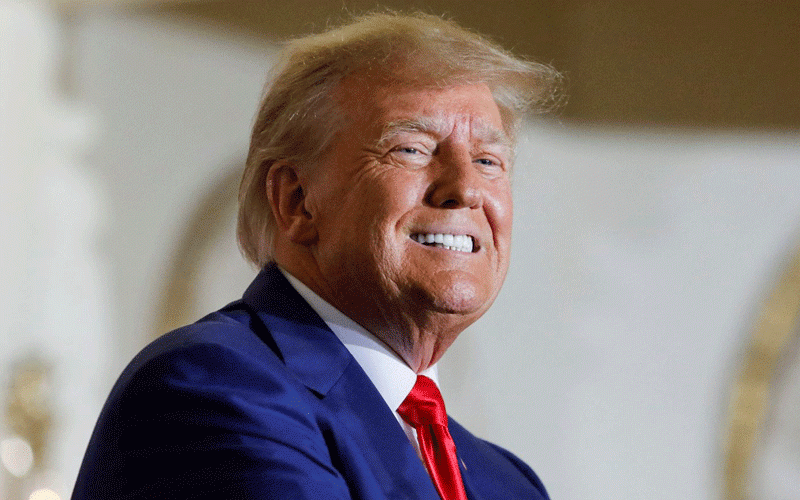ZIMBABWE’S trade and investments prospects may be negatively affected by United States President-elect Donald Trump’s proposed tariff policies, FBC Securities has said.
Trump made a political comeback by beating Democratic Party candidate Kamala Harris for the keys to White House. The Republican Party seized control of the Senate and are on course to win control of the House of Representatives.
This would allow Trump to pass most of his economic agenda to fulfill his election promises.
Part of this agenda includes a proposal to impose high tariffs on nations where trade is heavily skewed against the United States.
Trump previously served as the United States President from January 20, 2017 to January 19, 2021.
- Rabbit meat demand surges in Zim: Zicorba
- ZNCC calls for more IPP support
- ZICT boss warns of cryptocurrency scams
- India’s MOSIP to partner Sadc to enhance national identity systems
- As 2024 ends, insurers fret over govt third-party insurance takeover
“Higher US tariffs on global trade may reduce demand for Zimbabwe’s key exports, like minerals, worsening the foreign currency liquidity woes the economy currently faces,” FBC Securities said, in an analysis on the possible impact these potential developments might have on the Zimbabwean economy.
“A stronger US$ increases the cost of imports from dollar-denominated markets, which could strain Zimbabwe’s economy, given its dependence on foreign goods, energy and raw materials.”
A stronger dollar’s impact on Zimbabwe would be felt as statistics show that between 70% and 80% of all local monetary transactions are in US dollars.
“A stronger dollar and higher US yields on equities may redirect capital away from Zimbabwe’s equities, impacting sectors like mining and banking that rely on foreign investment,” the securities firm said.
“Zimbabwe’s foreign debt is mostly in US dollars, so a stronger dollar increases repayment costs, potentially straining government finances.”
Treasury reported in June that Zimbabwe’s public debt was about US$21 billion.
A significant amount of debt is accrued interest over unpaid arrears.
FBC Securities added that Trump’s proposed stricter immigration policy would likely suppress remittances too.
On average, Zimbabwe receives between US$1,5 billion and US$2 billion in remittances annually owing to its large diaspora community.
“Zimbabwe’s economy, which relies on remittances as a source of foreign exchange, could face additional strain, particularly if US immigration policy becomes stricter and targets undocumented workers who send money back home,” the securities firm said.
The firm also noted that Trump’s foreign policy toward Zimbabwe, upon assuming office in January, would be a continuation of previous US policies, limiting any signs of redress.
“There was limited direct engagement or new policy initiatives aimed specifically at Zimbabwe, as the country was not a major focus within Trump’s Africa policy,” FBC said.
“His administration maintained targeted sanctions and we do not see a possibility of a policy shift on that subject.”
FBC is a subsidiary of the financial group, FBC Holdings.













